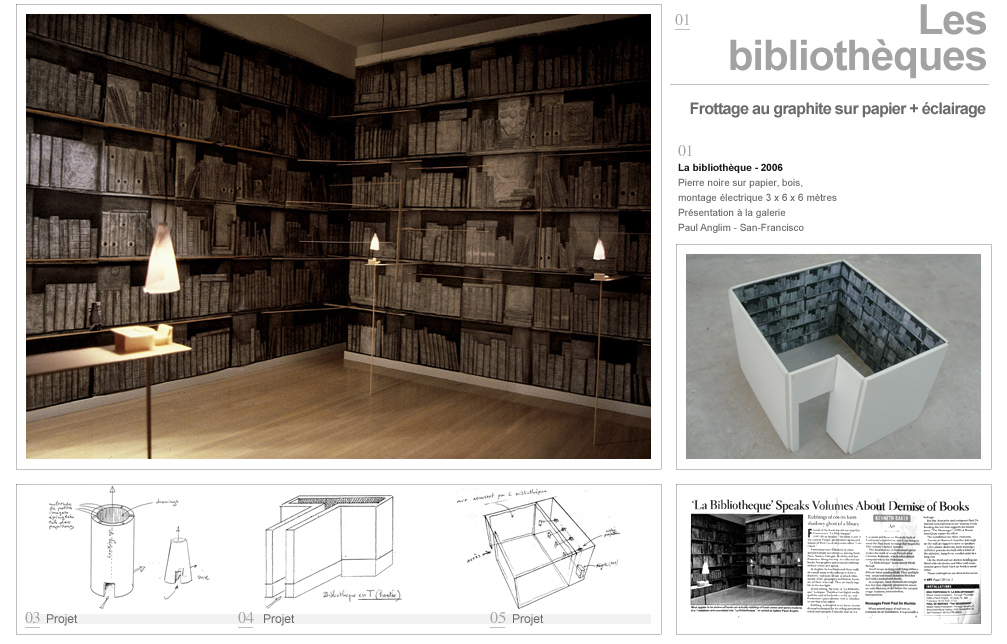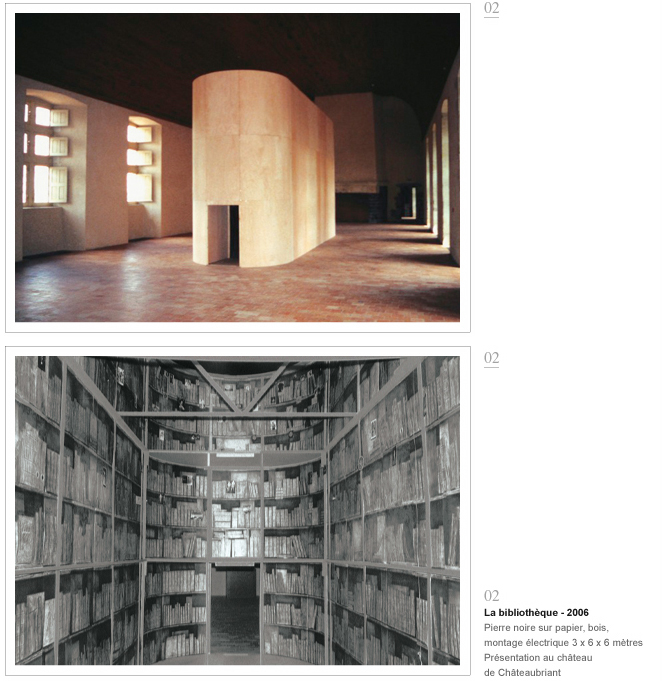
|
« Les Bibliothèque » sont des installations de dessins qui recrée l’espace « grandeur nature » d’une vraie bibliothèque.
Les livres sont des frottages sur papier d’ouvrages réels français, allemands, anglais, espagnols et japonais.
Ce type d’ installation est évolutif , il change de grandeur , de forme et de volume en fonction des lieux d’exposition. 


Friends of the book should not miss Eric Fonteneau’s « La Bibliothèque »(1997-98) at Paule Anglim gallery. The show is part of the current French government – sponsored season of west Coast art events called “Côte Ouest”. Fonteneau visited libraries in cites around Europe and America, among them, Paris, Nantes, Cologne, Berkeley, and San Francisco. Along the way, he collected not books, but graphite and charcoal rubbings of their covers and spines. At Anglim he has blanketed three walls of a small room with rubbings to form a shadowy, real scale library in witch titles, mostly of art, geography and history books, are all there is to read. They are barely legible in the low light. In this setting, the tone of “La Bibliothèque” is elegiac. The idea that digital media spell the end of the book is in the air; and Fonteneau’s piece chimes with it, weather or not that is his intent. Rubbing, has the artist must know, is a traditional technique for recording gravestone reliefs and epitaphs. Consider that he is a European and focus on the sooty look of Fonteneau’s installation, and it can bring to mind the Nazi book burnings that began the 20th century darkest decades. The Theatrical air of Fonteneau’s piece evokes the work of Senior French artist Christian Boltanski, which refers almost compulsively to the Holocaust. “La Bibliothèque” is not merely bleak, though. Small lamps on long cords hang within a delicate balsa wood scaffold.They spotlight tiny, unpainted wood dioramas: benches and tables stacked with books. As sculpture, these elements are weightless, but they objectify pleasures we associate with libraries, or did brfore the computer age: coziness, concentration, introspection. |



